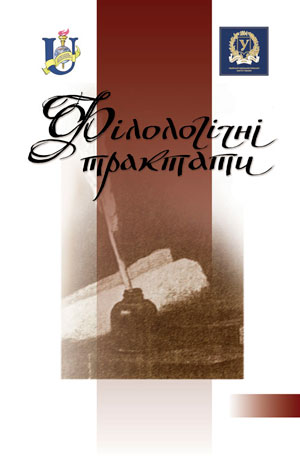DOCUMENTARY-PUBLICISTIC STAGE OF FLASH PROSE OF LITERARY EMIGRATION: TO THE PROBLEM OF TYPOLOGY
Keywords:
genre typology; flash prose; the interwar twentieth anniversary; literary emigration; mythological, national-historical, ethological and novelistic groups of worksAbstract
The article outlines the genre typology of the flash prose of the interwar 20th century. We continue the study of periodization of small genres started by I. Denisiuk who distinguished between «folklore» and «phases of sociological narrative and socio-psychological study» and suggest to define the period between 1919 and 1939 as documentary-publicist. We propose the following typology for flash prose of literary emigration: mythological, national-historical, ethological and novelistic. The mythological type focuses on figurative genres explaining some natural and social phenomena while the national historical group covers genres reaching into the «new» reality, the one that started after the October Revolution and the liberation movement. The task of the ethological group is to expose «bad» social habits in certain environment in certain time while striving to underline the «good» ones. The novelistic group combines short stories and essays with documentary and free composition, psychological novellas and short stories, fragmentary prose, as well as memoirs containing both, publicist and factual, basis. The flash prose of literary emigration is represented in the research in the following genres: 1) novellas and short stories; 2) related literary-publicist genres (sketch, feuilleton, pamphlet, essay), utopia and anti-utopia are close to this genre, too; 3) «folklore» (fairy tale, myth, parable, legend, short story); 4) miniature-fragmentary genres (poetry in prose, sketch, water colour, icon, picture, grotesque, aphorism, crucifixion)Downloads
Published
2022-05-04
How to Cite
Zhylenko, . I. (2022). DOCUMENTARY-PUBLICISTIC STAGE OF FLASH PROSE OF LITERARY EMIGRATION: TO THE PROBLEM OF TYPOLOGY. Philological Treatises, 13(2), 95–103. Retrieved from https://tractatus.sumdu.edu.ua/index.php/journal/article/view/1010
Issue
Section
Articles














